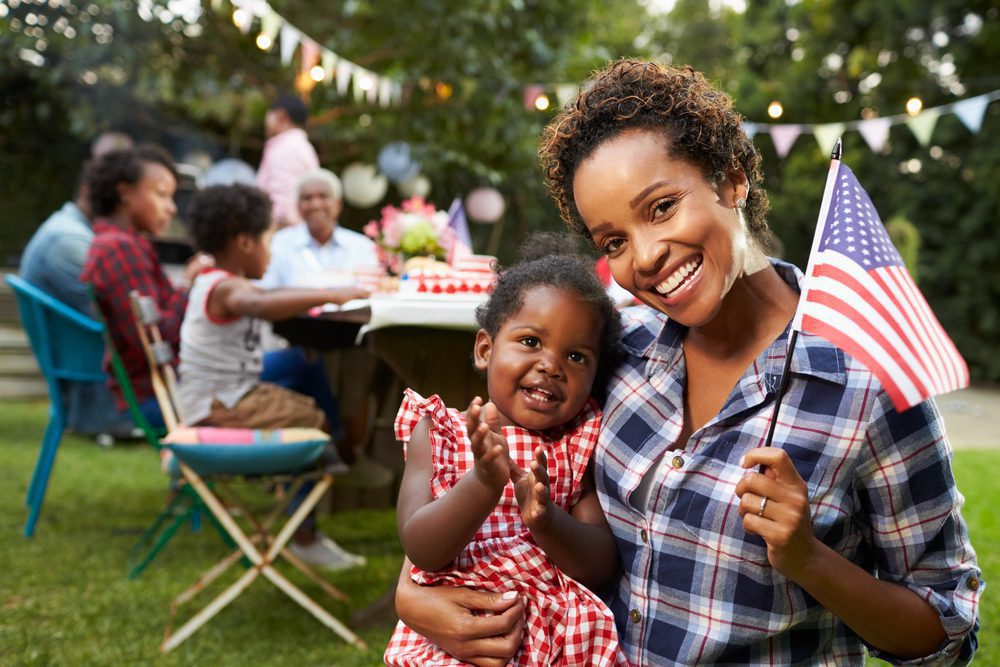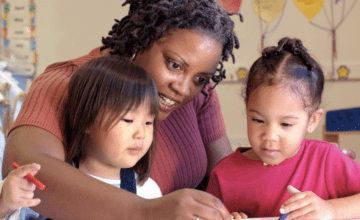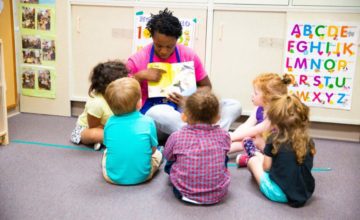Having a little one changes how you celebrate holidays, including the 4th of July. If you’re a little anxious about heading to the fireworks, a BBQ, or even a backyard picnic, keep these tips in mind to ensure everyone stays calm, cool, and collected (including the toddlers).
1.) Prepare for loud fireworks.
If you have little ones around, the American Academy of Pediatrics recommends leaving the fireworks to the professionals. Instead, catch a local fireworks show but be prepared for your child’s reactions. In case of loud noises or music, pack headphones or earmuffs to protect your child’s hearing. Also, consider bringing your child’s favorite toy or teddy bear to help them if they become startled or even bored. And be sure to bring extra blankets for the sleepy car-ride home!
2.) New foods may present challenges. Be patient.
If your summer holiday includes a BBQ, a picnic, or a potluck, your little one might have to try new foods that they haven’t tried yet at home. If your child is a picky eater, consider packing some of their favorite snacks to keep them satisfied. It’s normal for a child to be offered a new food 10 to 15 times before they actually eat it! So forget the old wives tale, “don’t play with your food.” Let your child touch, lick, and then hopefully taste the new food. If your party is outside, give yourself permission to let your child make a mess. It’s all part of how they become comfortable with new foods. And be sure to keep your food aversions to yourself—part of how your child learns what foods they like is by watching you!
3.) Take time with introductions.
Some children are naturally hesitant and shy around people they don’t know, and other children experience shyness from time to time. If your child wants to cling to your leg instead of playing with others, patiently respond to their need for comfort and attention. Think of yourself as a safe home base and try introducing your child to new people from the safety of your arms. Your child will pick up on your verbal and nonverbal cues, so be sure to keep your tone of voice and facial expressions in mind! If you take it slow and stay patient, you might soon find your child snuggling, running around, or playing with family and friends.
4.) Help your child play with others.
Parents feel a sense of pride and accomplishment when they watch their children play nicely with others. But at this age, don’t overestimate their skills! Learning how to share and play nicely with others is a long process. In ZERO TO THREE’s national parent survey, 43% of parents surveyed thought that children should be able to master sharing by age 2. In fact, these skills develop between 3.5 and 4 years old! To help your child play better with others, take an active role to help them manage difficult emotions and conflicts. Try narrating the situation to help your child see the problem from a different point of view, use a timer or clock for turn-taking, and let your child help solve problems and conflicts.
5.) Finally, take a deep breath!
Your little one is watching and taking cues from you. If your child is experiencing challenging behaviors, take a moment to reflect on your own emotions. It’s important to acknowledge your own holiday nerves and jitters, particularly if you get overwhelmed from time-to-time. (What parent doesn’t?) Try practicing self-compassion and take a moment for yourself. Finding your center will help you maintain your calm and focus during challenging parenting moments, even in the middle of a party!



